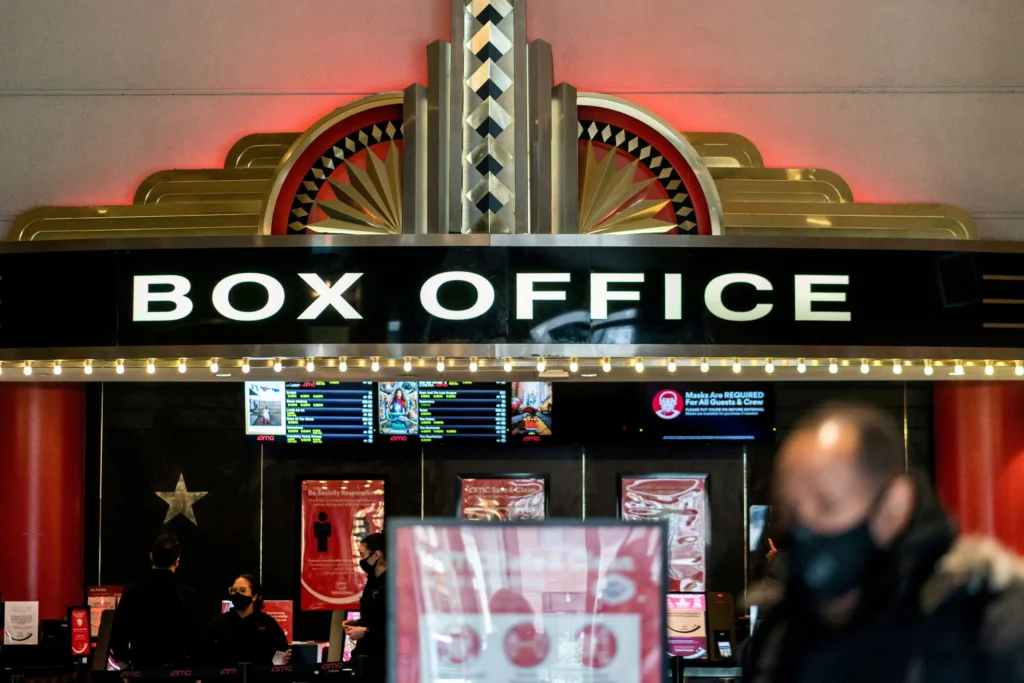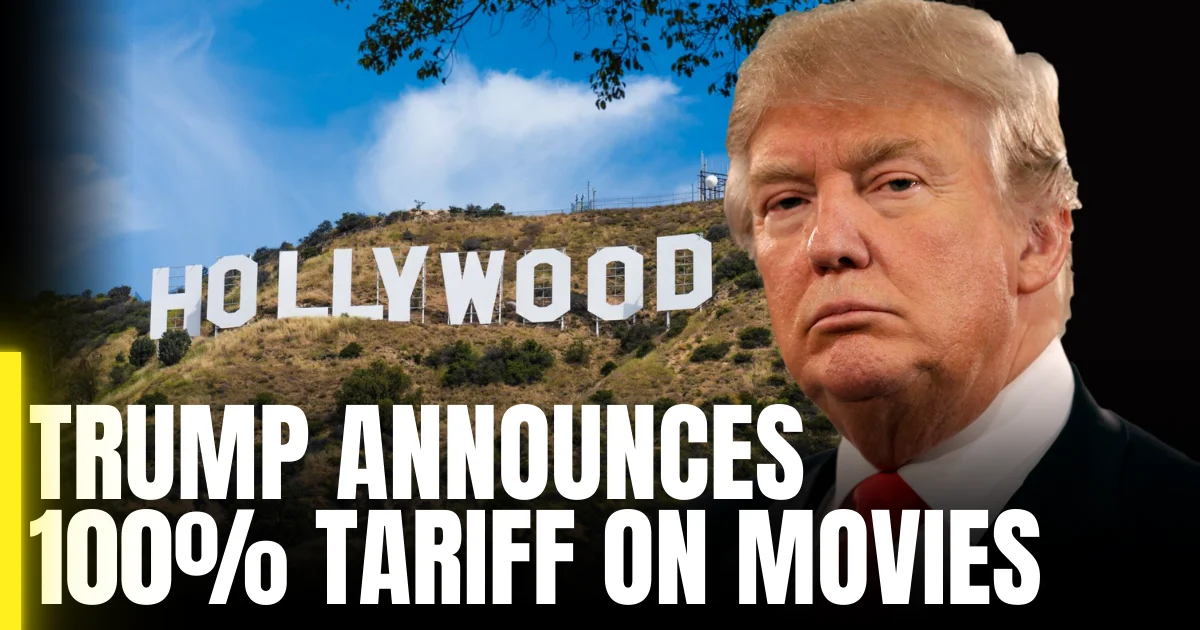Trump plans a 100% tariff on foreign films, sparking Hollywood backlash. Learn how this could reshape the movie industry and US economy.
Table of Contents
Trump Threatens 100% Tariff on Foreign Movies – Hollywood Stunned
Introduction
In a surprising move, President Donald Trump announced on Truth Social that he intends to impose a 100% tariff on all foreign-produced movies. If enacted, this would be the first time a US president has applied tariffs directly to a service industry rather than tangible goods.
Hollywood insiders say the plan could halt international film production and reshape the economics of the movie industry, which has already been struggling with declining box office revenue and the rise of streaming platforms.
Why Target Foreign Films?

Trump has argued that foreign governments offer generous tax incentives that lure filmmakers abroad, hurting states like California. In his Monday post, he claimed California has been “particularly hard hit” by overseas production.
However, industry experts point out that:
- US states, including California, already offer film tax credits.
- Production costs abroad remain significantly cheaper due to labor savings and rebates.
- Many US studios opt for international shoots because of cost efficiency, not just incentives.
“It’s cheaper for studios to fly crews overseas than to produce films entirely in the US,” said Jay Sures, Vice Chairman of United Talent Agency.
Hollywood Reacts: Shock and Skepticism
When Trump first floated the idea in May, Hollywood was blindsided. Industry insiders said such a tariff could virtually halt film production outside the US, but also noted that enforcing it would be legally complex.
- Actors and directors often prefer domestic shoots, but studios chase global cost savings.
- Studios like Netflix, AMC, and Disney saw mixed stock reactions following Trump’s latest post.
- Netflix stock fell 1%.
- AMC and Disney opened higher, suggesting investors see potential benefits for US-based productions.
The Movie Industry’s Struggles Post-Pandemic

The US box office has been on shaky ground since the pandemic:
- 2018: Nearly $12 billion in ticket sales (pre-pandemic peak).
- 2020: Just over $2 billion as theaters shut down.
- 2021–2024: Recovery began, but the number of new releases is still half of 2019 levels.
- 2025: Domestic box office gross has yet to pass $9 billion.
Meanwhile, streaming platforms dominate consumer habits, with fewer people attending theaters for major releases.
Warner Bros. Discovery (CNN’s parent company) remains a bright spot, crossing $4 billion in global box office sales this year—the first studio to reach that milestone in 2025.
More Tariffs on the Horizon
The foreign movie tariff isn’t the only trade measure in play. Trump has also announced:
- 100% tariff on branded drugs (with some exceptions)
- 25% tariff on heavy trucks
- 50% tariff on kitchen cabinets and vanities
- 30% tariff on upholstered furniture
- A potential substantial tariff on all imported furniture
These moves reflect Trump’s broader “America First” trade agenda, extending beyond manufacturing into industries like healthcare and entertainment.
FAQs on Trump’s Movie Tariff
Q1. What is Trump’s proposed foreign movie tariff?
Trump has threatened a 100% tariff on all foreign-produced movies, marking the first time tariffs would target a service sector.
Q2. How would this affect Hollywood?
Hollywood studios might face higher costs if forced to shoot domestically, while independent filmmakers could struggle to finance projects.
Q3. Will US consumers pay more for movies?
If enforced, tariffs could raise production costs, potentially making movie tickets, streaming subscriptions, and film licensing more expensive.
Q4. Is the tariff enforceable?
Industry experts say enforcement would be legally complex, since tariffs traditionally apply to goods, not creative services.
Q5. How have markets reacted?
Netflix stock dipped 1% after the announcement, while AMC and Disney shares gained, reflecting investor uncertainty about industry winners and losers.
Conclusion
Trump’s proposed 100% tariff on foreign films is both unprecedented and controversial. While it aligns with his aggressive trade policy stance, many industry experts doubt its feasibility. Still, with Hollywood facing declining box office revenue and shifting consumer habits, even the threat of tariffs adds to the uncertainty clouding the entertainment sector.

